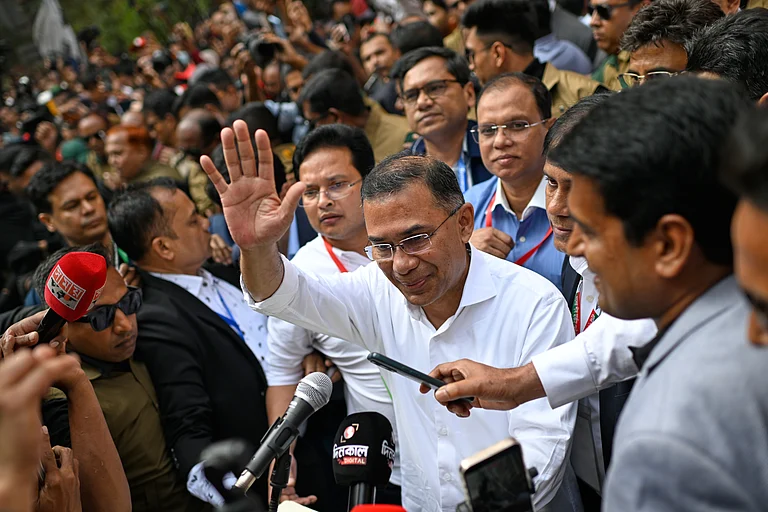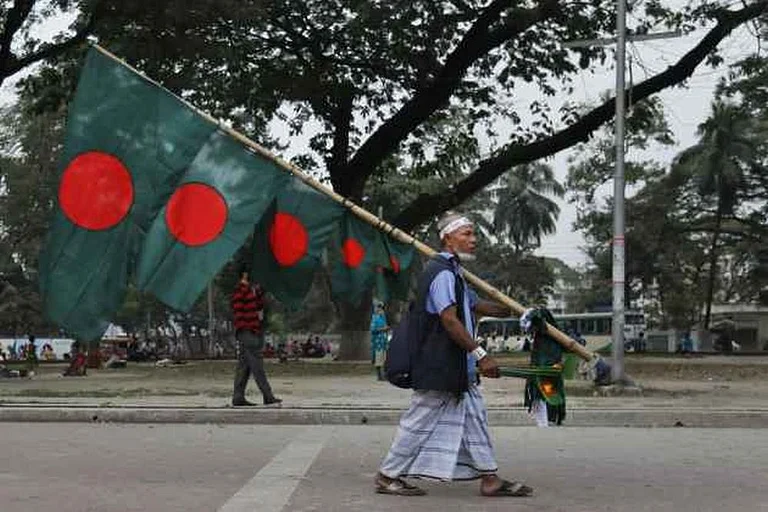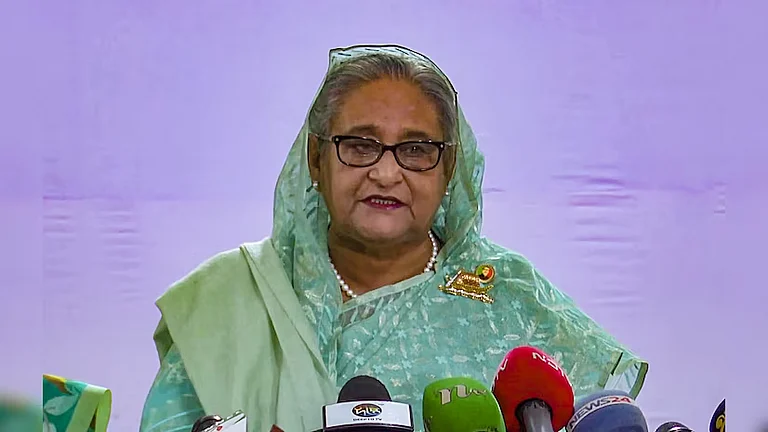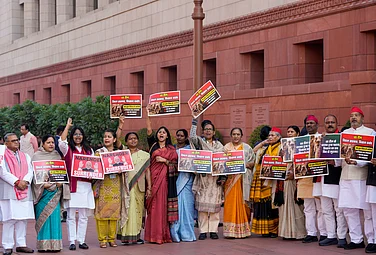
Bangladesh’s interim leader Muhammad Yunus warned of attempts by “powerful forces from inside and outside the country” to disrupt upcoming general elections, following the disqualification of Sheikh Hasina’s Awami League from contesting.
In her first media interviews since her ouster last August, Hasina, now in exile in India, said “millions of party supporters will boycott election” and called for “free, fair, and inclusive elections” to “restore democracy.”
The Awami League remains banned under the Yunus administration, with several of its leaders facing trial in absentia, while the opposition Bangladesh Nationalist Party (BNP) is seen as the frontrunner in the polls.
Bangladesh’s interim government chief, Muhammad Yunus, on Wednesday warned that “forces from home and abroad” might attempt to disrupt the upcoming general elections after the deposed prime minister Sheikh Hasina’s Awami League was barred from contesting.
“Many forces from inside and outside the country will work to spoil the election. Many powerful forces, not minor ones, will attempt to thwart it. Sudden attacks may come,” Yunus’s press secretary, Shafiqul Alam, quoted him as saying during a high-level meeting on election preparedness.
According to Alam, the Chief Adviser said the election would be “challenging” as “various types of propaganda will be carried out in a planned manner from inside and outside the country.”
Yunus also warned that AI-generated images and videos could be circulated online to spread misinformation and urged authorities to take immediate measures to prevent such content from influencing the Bangladesh polls. “We must overcome them (obstacles),” the 85-year-old was quoted as saying.
His comments came on the same day that Hasina gave interviews to several foreign news outlets, including The Independent newspaper in the UK — her first major interaction with the international media since her government was toppled on 5 August last year after violent student-led protests.
Since her ouster, the 78-year-old former prime minister has remained in India, while many senior leaders of her party and government have either been jailed or fled abroad.
Just three days after her removal, Yunus returned from Paris to assume charge of the interim administration, claiming that the protesting students had “appointed” him.
The Yunus-led government later issued an executive order disbanding the Awami League, citing national security concerns, and charged Hasina and several of her associates in absentia before Bangladesh’s International Crimes Tribunal.
The Election Commission subsequently suspended the Awami League’s registration, disqualifying it from participating in the upcoming polls. In her interviews on Wednesday, Hasina said “millions of party supporters will boycott election.”
With the Awami League out of the race, the opposition Bangladesh Nationalist Party (BNP) led by former premier Khaleda Zia has emerged as the frontrunner.
Despite the ban, Awami League supporters have continued to stage sporadic flash marches in Dhaka to signal their presence. Over recent months, police have arrested hundreds of activists from the “banned party” for organising such demonstrations. On Wednesday, five junior leaders were detained overnight for allegedly leading unannounced processions in different parts of the capital.
From her exile, Hasina reiterated her commitment to “restoring democracy” in Bangladesh. In an interview with The Independent, she said, “Only free, fair, and inclusive elections can heal the country,” adding that any future government “must have electoral legitimacy.”
“Millions of people support the Awami League, so as things stand, they will not vote. You cannot disenfranchise millions of people if you want a political system that works,” Hasina said, rejecting any government formed without her party’s participation









.jpg?auto=format%2Ccompress&fit=max&format=webp&w=768&dpr=1.0)



















